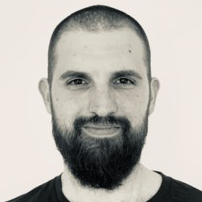Physioengineering, the Use of Engineering in Physiotherapy: Advances in Diagnosis, Treatment and Prevention
A special issue of Applied Sciences (ISSN 2076-3417). This special issue belongs to the section "Applied Biosciences and Bioengineering".
Deadline for manuscript submissions: 30 April 2024 | Viewed by 1234
Special Issue Editors
Interests: physiotherapy; musculoskeletal manipulations; exercise therapy; clinical reasoning; evidence-based practice; patients-reported outcomes; biomedical instrumentation; electronics; 3D printing
Special Issues, Collections and Topics in MDPI journals
Interests: physiotherapy; biomedical engineering; musculoskeletal manipulations; exercise therapy; clinical reasoning; evidence-based practice; quality of life
Special Issue Information
Dear Colleagues,
Physiotherapy is a health discipline that focuses on the diagnosis, treatment and prevention of movement-related injuries and other disorders. Physiotherapists have a wide range of tools at their disposal to achieve this goal. Manual therapy and therapeutic exercise are the best known and most researched areas of physiotherapy. However, technological advances have allowed for engineering’s increased presence in teaching, research and clinical practice. Collaboration with engineers is thus essential for the continued growth and development of the profession. This Special Issue introduces physioengineering as an interdisciplinary field that combines the principles and techniques of physiotherapy and engineering to model and develop innovative technological tools and devices to improve the prevention, diagnosis and treatment of musculoskeletal and neural disorders.
This edition calls for research studies using established methods or novel technologies focused on clinical applications or their validation in randomised trials, such as: medical devices, computer-aided diagnosis, computer vision (CV), 3D printing, rapid prototyping, additive manufacturing, control systems, biosignal processing, biomedical imaging, medical imaging, system identification, biosystems modelling, dynamic systems, artificial intelligence and numerical simulation.
The collaboration between physiotherapy and engineering can lead to the development of cutting-edge technologies that can significantly improve the diagnosis and treatment of movement-related injuries and disorders, and ultimately improve the quality of life of patients.
Dr. Andoni Carrasco-Uribarren
Dr. Sara Cabanillas-Barea
Dr. Portela Alejandro
Guest Editors
Manuscript Submission Information
Manuscripts should be submitted online at www.mdpi.com by registering and logging in to this website. Once you are registered, click here to go to the submission form. Manuscripts can be submitted until the deadline. All submissions that pass pre-check are peer-reviewed. Accepted papers will be published continuously in the journal (as soon as accepted) and will be listed together on the special issue website. Research articles, review articles as well as short communications are invited. For planned papers, a title and short abstract (about 100 words) can be sent to the Editorial Office for announcement on this website.
Submitted manuscripts should not have been published previously, nor be under consideration for publication elsewhere (except conference proceedings papers). All manuscripts are thoroughly refereed through a single-blind peer-review process. A guide for authors and other relevant information for submission of manuscripts is available on the Instructions for Authors page. Applied Sciences is an international peer-reviewed open access semimonthly journal published by MDPI.
Please visit the Instructions for Authors page before submitting a manuscript. The Article Processing Charge (APC) for publication in this open access journal is 2400 CHF (Swiss Francs). Submitted papers should be well formatted and use good English. Authors may use MDPI's English editing service prior to publication or during author revisions.
Keywords
- physiotherapy
- evidence-based practice
- quality of life
- biomedical engineering
- biomedical signal processing
- biomedical imaging
- deep learning
- machine learning
- computational modelling
- multiphysics simulation
- finite element method
- computer simulation







